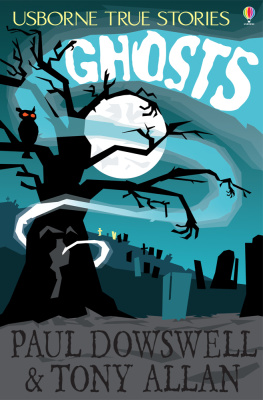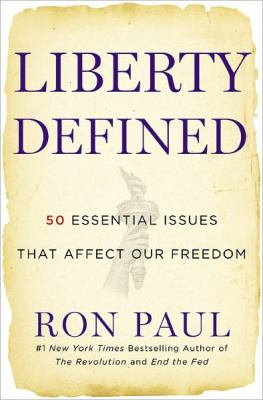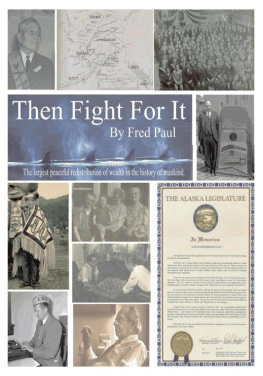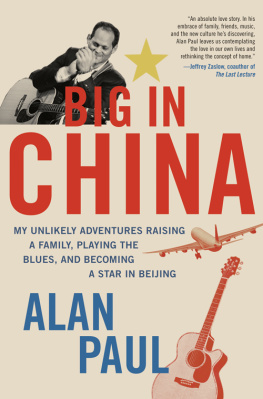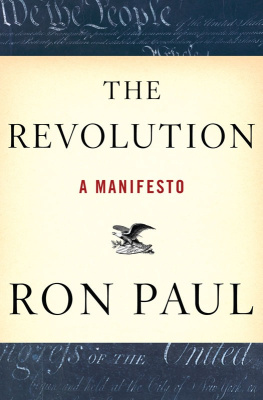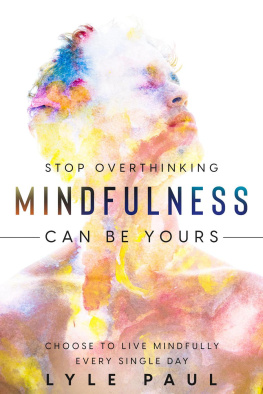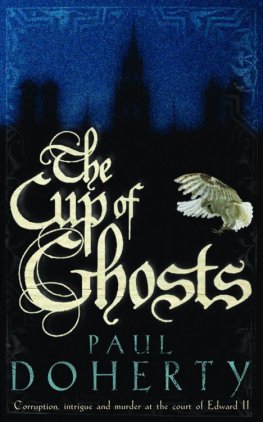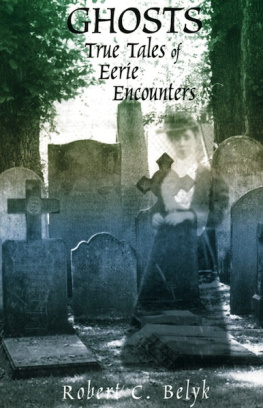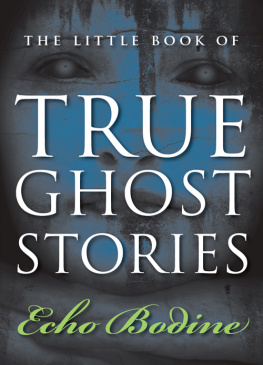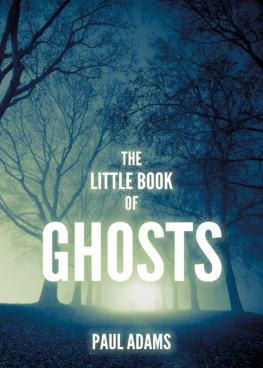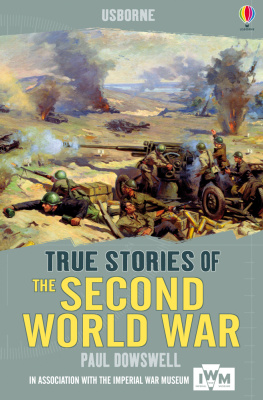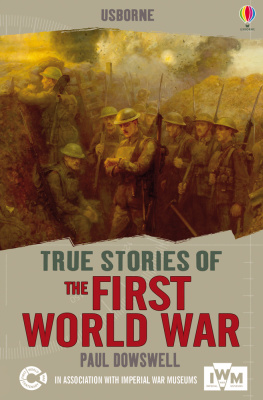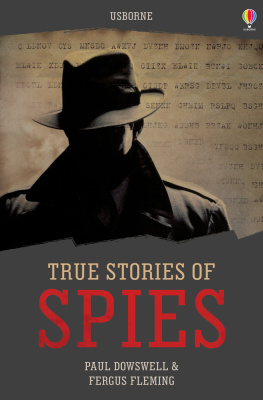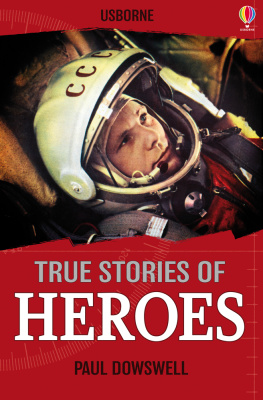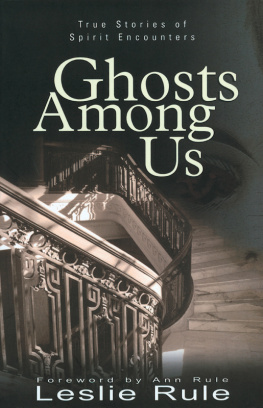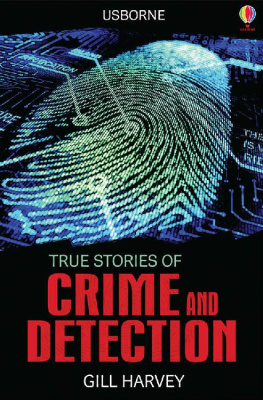Paul - Usborne True Stories: Ghosts
Here you can read online Paul - Usborne True Stories: Ghosts full text of the book (entire story) in english for free. Download pdf and epub, get meaning, cover and reviews about this ebook. publisher: Usborne, genre: Non-fiction. Description of the work, (preface) as well as reviews are available. Best literature library LitArk.com created for fans of good reading and offers a wide selection of genres:
Romance novel
Science fiction
Adventure
Detective
Science
History
Home and family
Prose
Art
Politics
Computer
Non-fiction
Religion
Business
Children
Humor
Choose a favorite category and find really read worthwhile books. Enjoy immersion in the world of imagination, feel the emotions of the characters or learn something new for yourself, make an fascinating discovery.
- Book:Usborne True Stories: Ghosts
- Author:
- Publisher:Usborne
- Genre:
- Rating:4 / 5
- Favourites:Add to favourites
- Your mark:
- 80
- 1
- 2
- 3
- 4
- 5
Usborne True Stories: Ghosts: summary, description and annotation
We offer to read an annotation, description, summary or preface (depends on what the author of the book "Usborne True Stories: Ghosts" wrote himself). If you haven't found the necessary information about the book — write in the comments, we will try to find it.
Usborne True Stories: Ghosts — read online for free the complete book (whole text) full work
Below is the text of the book, divided by pages. System saving the place of the last page read, allows you to conveniently read the book "Usborne True Stories: Ghosts" online for free, without having to search again every time where you left off. Put a bookmark, and you can go to the page where you finished reading at any time.
Font size:
Interval:
Bookmark:

Is there really such a thing as a true ghost story? The strange tales in this book are all based on actual reports by people who believed they had been haunted by ghosts or poltergeists. You can make up your own mind after reading their stories

The first detailed account of a haunting, complete with an ancient apparition dragging clanking chains behind it, was put down in writing by a Roman author almost 2,000 years ago. Since then, ghost stories have been told by people all over the world. These include accounts of hauntings by the spirits of people who are still alive, as well as hauntings by the dead. Today, research suggests that around one in ten people claim to have seen a ghost, which adds up to a figure of many millions worldwide. Still, many more havent, and plenty of them are all too ready to insist that ghosts dont exist.
So how true are the hauntings described in this book? Certainly, the people who witnessed the stories claimed they were true. Among these witnesses were well-respected, educated individuals such as doctors, clergymen and magistrates, all of whom could find no natural explanation for the weird things they saw. In many cases their stories are particularly compelling because they opened themselves up to professional ridicule by insisting they had witnessed supernatural events.
Of course it is always possible that the witnesses in this book did not have all the facts, or simply mistook a natural phenomenon for a supernatural one. Theres no such thing as a guaranteed ghost. And, oddly enough, the very uncertainty surrounding their reports may be what gives tales of hauntings their lasting appeal.
Did Lord Tyrone really come back from the dead to keep a promise to his sister? Was the poison that killed Jack Bell in 19th-century Tennessee really administered by a phantom hand? Were the moving coffins of Barbados actually shifted by restless spirits? This book doesnt claim to have the answers. Instead, it tells the tales as they were reported at the time. Its up to you to decide for yourself whether or not these extraordinary stories are true.
The Vengeful Voodoo Phantom
The grand residence named Rose Hall had never been the same since the grisly death of its mistress, Annie Palmer. In the months after her murder, guests came to the Jamaican mansion house to offer their sympathies to the surviving members of the Palmer family. But at days end, after they had admired the beautiful views over the islands famous Montego Bay, these guests would sometimes see a strange, ghostly figure drifting up the Halls grand staircase a figure that looked oddly familiar. Perhaps it had greeted them on the road to the Hall, beckoning them to come inside?

Then, at night, as they slept, safe and snug between their cool cotton sheets, these guests would be thrown suddenly from their beds. They would wake with a terrifying sensation that of having their mattresses pressed down upon them, as if to crush and smother the life out of them. It was all too reminiscent of Annie Palmers own untimely and unpleasant demise.
In 1800, Rose Hall had been Jamaicas most impressive address. The grand mansion, built in the style of an English stately home, was the residence of the wealthy Palmer family. The Palmers were planters, who had made their fortune off the back of slave workers, who toiled under the blazing Caribbean sun, cutting sugar cane on Rose Halls vast plantation.
The huge profits the Palmers made from their sugar business helped furnish Rose Hall in magnificent style, and fitted it out with all the luxuries the age could provide. It was here, under the glow of flaming torches, that Jamaicas wealthy elite met at splendid balls and banquets. Gentlemen in powdered wigs and ladies in richly embroidered gowns would dance until dawn, and feast on sumptuous meals served at tables glittering with silver. All around them was evidence of the Palmer familys fabulous wealth, for the Hall was festooned with hand-tooled carvings, intricate plasterwork and magnificent paintings.
But all this was to change. By the time the century was halfway through, Rose Hall would be a crumbling shadow of its former glory. Tropical vegetation invaded the imposing drive up to the house, and choked the once carefully-tended flower beds. Weeds and moss grew in cracks on the pillared terrace, and bats and toads made their homes in rooms where dancers had once spun. And if a visitor should ask what had caused the house to fall into ruin, they were told it was all the work of one woman evil Annie Palmer.
This was undoubtedly true. The seeds of the houses destruction lay in John Rose Palmers decision to marry Annie, a fiery Irish girl who had been brought up on the nearby island of Haiti. John was head of the Palmer family, so his new bride became mistress of Rose Hall. She was only 18 years old.
Annie was petite and beautiful, but she had a sharp tongue and would fly into a raging temper if she could not get her own way. Almost as soon as she arrived, she became feared and hated by the staff and servants of the Hall, who would gossip incessantly about her terrible conduct. One story about her swept through the servants like wildfire. It was said that when she was a child, her Haitian nurse had taught her the art of voodoo Haitis secret and sinister witchcraft religion.
But this piece of gossip was as nothing compared to what was whispered when John Palmer passed away, only a few months after the couples marriage. Officially, it was said that John had died after eating some poisonous shellfish. But on the night of his death, servants had heard a terrible argument between John and Annie. Straining to hear the couple as they raged and fought, a chambermaid heard John accuse Annie of taking a handsome slave as a lover. He told her that their marriage was over, and that she should leave Rose Hall the following morning.
But the next morning came and went. Annie had appeared as usual for breakfast, but she seemed slightly subdued, and told the staff her husband was ill and wished to be left alone.
That evening a servant had gone to his masters bedroom to find John Palmer stone cold dead, his face contorted in an agonizing grimace. The Hall staff immediately decided Annie must have poisoned him, but the doctor called to examine the body was sure his demise was due to the seafood he had eaten the night before. Perhaps Annie had used a secret voodoo recipe to poison him? Whatever she might have done, she had covered her tracks very carefully.
Then, over the next few days, more gossip drifted in from the plantation. It appeared that one of the slaves had indeed been seeing Annie. It was even whispered that this slave had helped to murder John Palmer, by smothering him with a pillow as he lay groaning in his bed, in agony from the poison that coursed through his body. When Annie ordered that this same slave should be whipped to death for a trivial wrongdoing only she had witnessed, tongues began to wag even louder. It looked as if Annie had decided to remove the only other witness to John Palmers murder, so that no one could ever accuse her of causing his death.
With her husband dead and buried, Annie Palmer was now a very wealthy woman, and the sole mistress of Rose Hall. She had friends at the highest level of Jamaican society, and no one at the Hall ever dared openly voice their suspicion that Annie had murdered her husband. She would marry twice more, and in both cases her husbands would die suspiciously young and unexpectedly. Again, servants were convinced that they had been discarded when Annie grew tired of them. But, as before, nothing could be proven, and it seemed that no one dared mention their concerns to the police.
Font size:
Interval:
Bookmark:
Similar books «Usborne True Stories: Ghosts»
Look at similar books to Usborne True Stories: Ghosts. We have selected literature similar in name and meaning in the hope of providing readers with more options to find new, interesting, not yet read works.
Discussion, reviews of the book Usborne True Stories: Ghosts and just readers' own opinions. Leave your comments, write what you think about the work, its meaning or the main characters. Specify what exactly you liked and what you didn't like, and why you think so.

